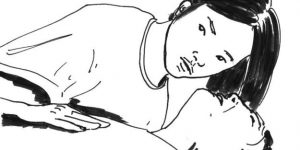
Arden Hegele, Fellow at the Society of Fellows
Rishi Goyal, Director of the Medicine Literature and Society Program at ICLS
The Society of Fellows in the Humanities and the Institute for Comparative Literature and Society
Explorations in the Medical Humanities
Anita Guerrini (Oregon State)
Respondent: Pamela Smith, Columbia University Chair: Heidi Hausse
The human skeleton became an object—scientific, natural, artistic,and artisanal—in the period between the late 15th century and the late 18th century. While retaining its symbolic value, in this period the skeleton became essential both to anatomists and to artists as the bedrock of the human form. As a valued commodity, skeletons were bought and sold, and entered public and private collections.Anatomical manuals included instructions on their crafting. This talk will examine who owned skeletons, who used them, and who made them, and the fact that their origins as dead humans remained curiously unexpressed.
As a set of disciplines, the humanities face the challenge of how to write about embodied experiences that resist easy verbal categorization such as illness, pain, and healing. The recent emergence of interdisciplinary frameworks such as narrative medicine has offered a set of methodological approaches to address these challenges. Yet conceptualizing a field of medical humanities also offers a broader umbrella under which to study the influence of medico-scientific ideas and practices on society. Whether by incorporating material culture such as medical artifacts, performing symptomatic readings of poems and novels, or excavating the implicit medical assumptions underlying auditory cultures, the approaches that emerge from a historiographical or interpretive framework are different from those coming from the physician’s black bag.
This lecture series will explore the enigma of how what we write relates back to the experience of bodies in different stages of health and disease. Our speakers will explore how the medical humanities build on and revise earlier notions of the “medical arts.” At stake are the problems of representation and the interpretation of cultural products from the past and present through medical models.







